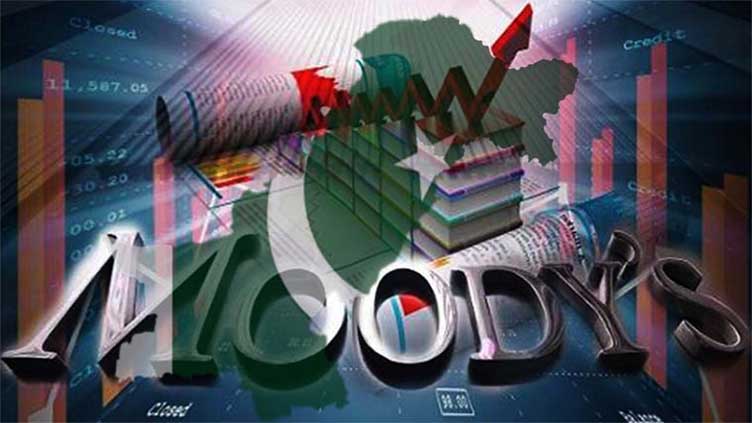Raise in govt expenditure 'reflects lack of cost-containment measures', says Moody's

Business
The budget estimated debt servicing payments to have increased by about 18pc for fiscal 2025
(Web Desk) – Global ratings agency Moody's on Friday pointed out that the federal government has enhanced its expenditure to Rs18.9tr, about 25pc higher than a year ago, in the budget for financial year 2024-25 that “reflects lack of significant cost-containment measures.”
Moody's comment report said the cash-starved Pakistan government had set a challenging target to substantially increase federal government revenue to Rs17.8 trillion, about 46pc higher from a year ago, only to pave the way for another IMF loan.
“The announced budget will likely support Pakistan’s ongoing negotiations with the IMF for a new Extended Fund Facility (EFF) programme that will be crucial for the government to unlock financing from IMF and other bilateral and multilateral partners to meet its external financing needs,” it said.
However, it said that it will be the government’s ability to sustain reform implementation that will be key to allowing Pakistan to meet its budget targets and continually unlock external financing to meet its needs, leading to a durable easing of liquidity risks.
“A resurgence of social tensions on the back of high cost of living (which may increase because of higher taxes and future adjustments to energy tariffs) could weigh on reform implementation,” the report noted.
Moreover, risks that the coalition government may not have a sufficiently strong electoral mandate to continually implement difficult reforms remain, it added.
The government announced a consolidated (federal and provinces) budget deficit of 5.9pc of GDP for fiscal 2025, narrowing from an estimated 7.4pc for fiscal 2024.
The primary balance is set at a surplus of 2.0pc of GDP for fiscal 2025, from around 0.4pc for fiscal 2024.
The government projects real GDP growth at 3.6pc for fiscal 2025 and headline inflation at 12pc.
The budget showed the government seeks to achieve quicker fiscal consolidation mainly through increases in revenue, with little spending-containment measures.
The increase in revenue is led by a 40pc increase in tax revenue that the government seeks to achieve through a combination of new taxes (for example, higher taxes on cars, cement, steel, gas and diesel) and stronger nominal growth.
Overall, the government targets an increase in revenue/GDP to 14.3pc in fiscal 2025 from 11.5pc in fiscal 2024.
The budget allocated subsidies increased by 27pc to Rs1.4tr, mainly driven by large increases in subsidies to the power sector, reflecting limited progress in energy sector reforms.
The government has also increased public sector pensions and salary budgets.
Meanwhile, the government spends more than half its revenue on interest payments, indicating very weak debt affordability which drives high debt sustainability risks.
The budget estimated debt servicing payments to have increased by about 18pc for fiscal 2025 compared with a year ago.
About 55pc of fiscal 2025 revenue (Rs9.8tr) is earmarked for interest payments on the government's debt.
Pakistan's very weak debt affordability drives high debt sustainability risks.
Having a significant share of its budget allocated towards debt payments will constrain the government's capacity to service its debt while meeting essential social spending and infrastructure needs, the report noted.


